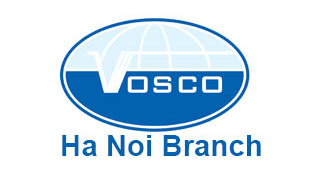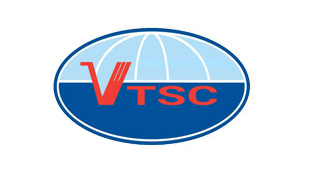 HOW ARE SEAFARERS TREATED AMID COVID-19?
HOW ARE SEAFARERS TREATED AMID COVID-19?
In light of the challenging situations arising from the COVID-19 pandemic, the International Labour Organization (ILO) and International Maritime Organization (IMO) have issued statements highlighting that seafarers should be exempted from travel restrictions and be treated as "key workers".
This comes after reports that in some parts of the world suppliers have been prevented from boarding ships to give masks, overalls and other personal protective equipment to crews. Some ports have also refused to allow some ships to enter because they had previously docked in areas affected by COVID-19, preventing vessels from obtaining essential supplies. The unforeseen consequence of this ban has been for seafarers to be stuck onboard, unable to return home at the end of their contract.
In this circumstance, seafarers, ship owners and governments are urging ILO member States to ensure the flow of essential goods, energy, food and medicines during the COVID-19 pandemic
ILO: Treat seafarers with “dignity and respect” during COVID-19 crisis
Seafarers’ rights are set out in the ILO’s MLC, 2006, which establishes minimum requirements for almost all aspects of working conditions for seafarers, including conditions of employment, hours of work and rest, repatriation, shore leave, accommodation, recreational facilities, food and catering, health protection, medical care, welfare and social security protection. The Convention has now been ratified by 96 ILO member States , representing more than 91 per cent of the world‘s merchant shipping fleet. Seafarers should be treated as ‘key workers’ and be exempted from travel restrictions during the COVID-19 pandemic , say the Officers of a special International Labour Organization (ILO) tripartite maritime committee representing seafarers, ship owners and governments.
A joint statement issued by the Officers of the Special Tripartite Committee of the Maritime Labour Convention (MLC, 2006) also called on ILO member States to “do all that they can to facilitate the delivery of essential medical supplies, fuel, water, spare parts and provisions to ships”.
According to the statement, ports in some parts of the world have also refused to allow some ships to enter because they had previously docked in areas affected by COVID-19, preventing vessels from obtaining essential supplies.
“Seafarers are just as worthy as everyone else and should be treated with dignity and respect to ensure that they can continue to provide their vital services to the world,” the statement said.
The committee also underlined the importance of ensuring that the flow of essential goods, energy, food, medicines and many other products around the world is not disrupted “by measures that impede the safe and efficient movement of ships and the seafarers who operate them”.
ILO Director-General Guy Ryder, has asked governments “to ensure that, in these challenging times, seafarers are adequately protected from the COVID-19 pandemic, have access to medical care, and can travel to and from their ships, as necessary, in order to continue to play their crucial role”.
He welcomed “the coordinated efforts undertaken by social partners [employers’ and workers’ organizations] and the international community to respond to the crisis created by the COVID-19 pandemic in the maritime sector.”
The COVID-19 epidemic is having a major impact on global shipping – which moves 90 per cent of world trade – and the working conditions of the nearly two million seafarers.
IMO: Tackling COVID-19 – a voyage together
In other development, IMO Secretary-General Kitack Lim has issued a statement addressing the effect of the coronavirus pandemic on the shipping industry and the global supply chain.
IMO Secretary-General stresses vital need to maintain commerce by sea and protect seafarers' welfare in face of coronavirus shut down.
"The spread of the coronavirus has placed the entire world in an unprecedented situation. To slow the spread of the disease and mitigate its impacts, travel is being curtailed and borders are being closed. Transport hubs are being affected. Ports are being closed and ships denied entry.
In these difficult times, the ability for shipping services and seafarers to deliver vital goods, including medical supplies and foodstuffs, will be central to responding to, and eventually overcoming, this pandemic.
It is, therefore, crucially important that the flow of commerce by sea should not be unnecessarily disrupted. At the same time, the safety of life at sea and protection of the marine environment must also remain paramount.
One of the goals of the IMO, as stated in its Convention, is to ensure availability of shipping services to the commerce of the world, for the benefit of humanity. I urge all IMO Member States to bear this in mind when framing their policy decisions with regard to the coronavirus. Defeating the virus must be the first priority, but global trade, in a safe, secure and environmentally friendly manner must be able to continue, too.
We must also remember the hundreds of thousands of seafarers on ships. They are, unwittingly, on the front line of this global calamity. Their professionalism ensures that the goods we all need are delivered – safely and with minimal impact on our precious environment. These are people, usually far from home and family. Their own health and welfare is as important as that of anyone else.
Again, I urge a practical and pragmatic approach, in these unusual times, to issues like crew changeovers, resupply, repairs, survey and certification and licensing of seafarers.
Together with our industry partners and colleagues in the World Health Organization, IMO has been developing and issuing practical advice and guidance on a variety of technical and operational matters related to the coronavirus. You can find this on our website, and we will be updating this as appropriate as the situation develops.
I will personally be initiating a series of meetings and consultations with leaders from shipping, ports and other key related sectors so that we can all better understand the issues being faced and develop sensible, practical and unified solutions.
I have spoken many times of our "voyage together". Never has the spirit of those words been more important than it is now."
In this spirit, IMO Secretary-General has asked the United Nations system agencies to support IMO in its request to governments to declare seafarers, port personnel and other crucial maritime workers as key personnel. Mr. Lim made the plea during a virtual meeting (1 April) with other UN chiefs and the UN Secretary-General. The meeting addressed the impact of COVID-19 on, among other things, disruption and restrictions to travel, trade flows, global logistics, supply of food, pharmaceuticals and medical equipment.
During the meeting, Mr Lim highlighted the importance of welfare and well-being of maritime personnel and particularly seafarers and the significance of crew changes to support the global supply chain. He also highlighted the major restrictions to crew changes due to travel bans and restrictions that are being increasingly imposed by governments due to the COVID-19 pandemic.
Mr Lim reiterated his message that shipping is a vital artery for the economy to enable the global supply chain and global trade flows, including in particular urgently needed pharmaceuticals, medical equipment and food supply. Seaborne trade is still flowing but challenges are growing due to restrictions being introduced by countries.
(According to ILO and IMO websites)






















